
Find out the average tankless water heater repair cost, what impacts pricing, and how to save. Get expert tips to plan your repair budget with confidence.
Simmer down with simple boiler tips to keep emergencies away


The boiler is the beating heart of a home radiant heat system, heating and pressurizing water so it can circulate throughout rooms. That’s why frequent boiler maintenance is so important, and why every homeowner with a boiler should have an upkeep schedule.
An effective boiler maintenance plan must include cleaning the boiler, checking for leaks, keeping an eye on temperature and pressure, and occasionally bleeding air from the boiler system. Let’s review boiler maintenance tasks and when to hire a boiler professional to handle repair and other tasks.
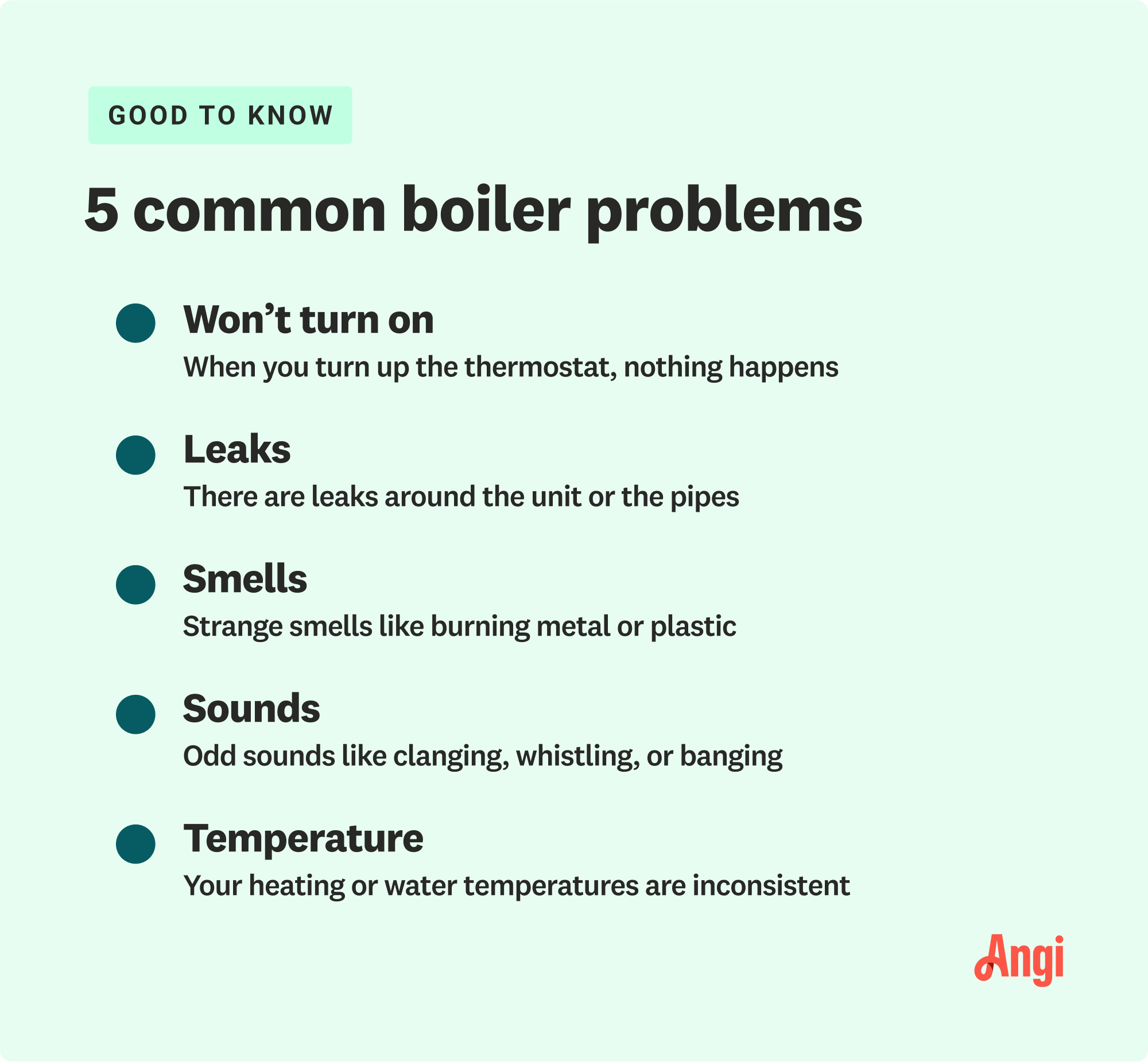
A boiler is a large tank that heats water and is equipped with sensors and valves to maintain specific water temperature and pressure. We know, that sounds like the common hot water tank you can find in most homes, but there’s an important difference. Boilers heat and pressurize water to higher degrees for more specialized tasks, like radiant heat systems used by radiators, baseboard heaters, and some underfloor heating. You can find these boilers in basements, garages, and other protected spots.
Since boilers have even higher performance thresholds than water heaters, they benefit greatly from proper home maintenance. A broken boiler is a greater hazard risk than most other home appliances, from explosions to damaging leaks. At minimum, homeowners should know their boiler location, the signs of a boiler that needs attention, and how to care for it throughout cold seasons.
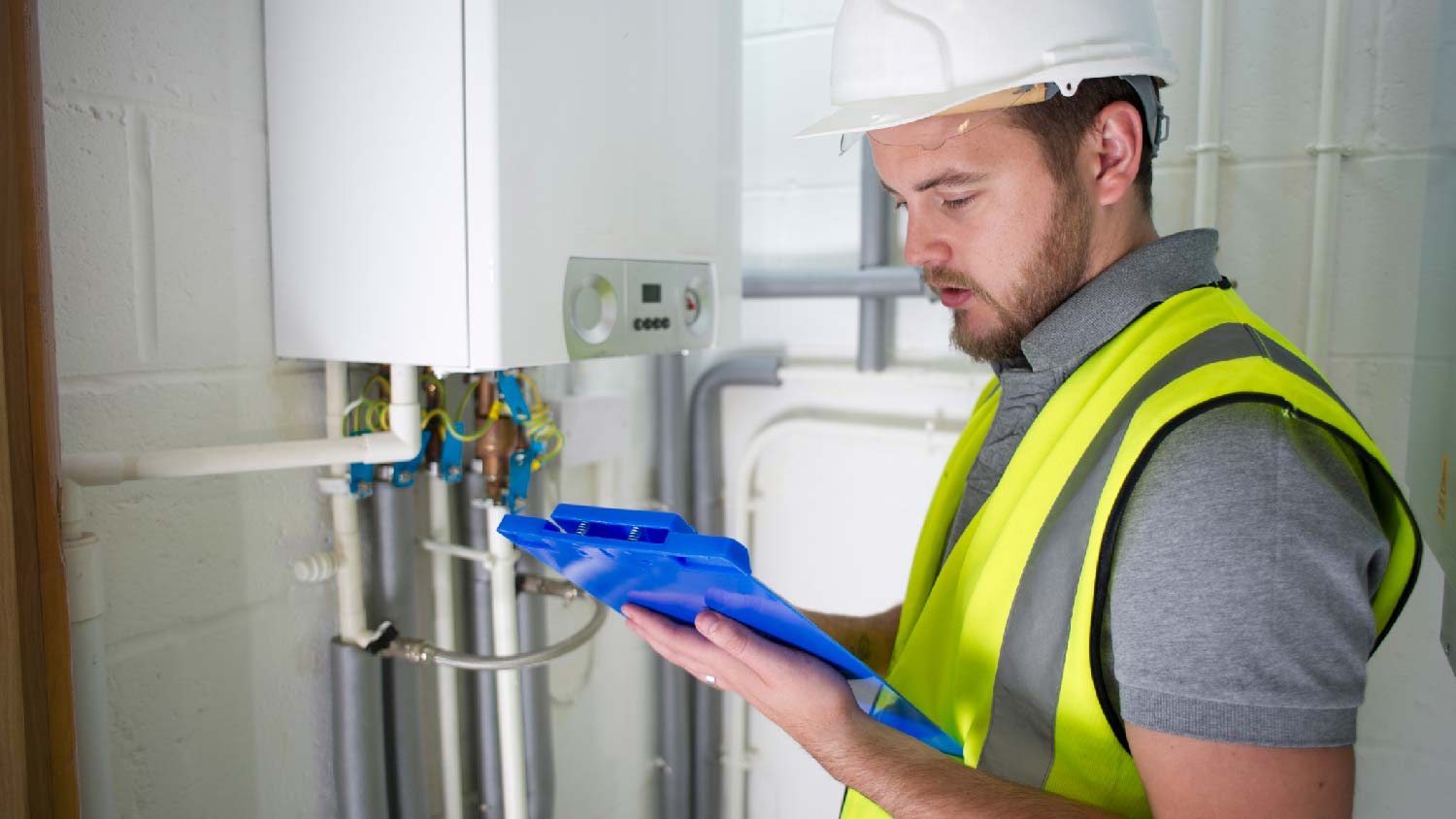
Boiler maintenance ranges from weekly steps to annual checkups. You may not need to do these steps every day, but they should be part of regular boiler check-ups.
Give the boiler space: Don’t stack supplies or objects near the boiler. Make sure all sides of the boiler have at least several inches of room, and that boiler controls and valves are easily accessible at any time.
Clean flue vents (fuel versions): Flue vents channel exhaust from a gas boiler to outdoor air, usually through a vent installed in a nearby wall or rooftop. Keep them clear of any debris like leaves. If necessary, make sure they have hoods and are placed in a weather-protected location. A blocked or faulty flue could lead to dangerous CO gasses leaking into the home.
Inspect boiler temperature range: Boilers have a temperature gauge and may have the ability to set temperature ranges so you can control when the boiler heats up. When turning on your boiler for the season, ensure that its temperature range is correct. Check that the boiler is properly shutting down after reaching the desired temperature range.
Use a leak detector or check for leaks: Leaks can indicate broken valves, cracked or loose pipes, pressure issues and many other boiler problems, so always keep an eye out for damp spots or puddles. Set leak detectors near the boiler to sound alarms and catch leaks early before major problems develop. If your boiler has floor drains, check that they are clear and functioning properly.
Inspect water levels: Most boilers have a sight glass or gauge to measure the current water level. If water levels reach a low point, take action and add more water according to your manual instructions or contact a boiler pro.
Inspect pressure levels: Boilers have a pressure gauge, often part of the temperature gauge, which shows current PSIs. It’s important to make sure the pressure falls within the safe zone for boiler operation, and know how to check it if your boiler is making weird noises or having other issues.
When you’re turning your boiler on for the season or planning your annual maintenance, here’s what to include:
Use the bleed valve to remove excess air: When new water is added, air can enter a boiler, creating inefficiencies. That’s why it’s a good idea to “bleed” the boiler before turning it back on for a season. Boilers have bleed or vent valves designed to release any air trapped in the system. These valves are often on boiler radiators, but they may be closer to the boiler unit, too. Before you begin, make sure the boiler is fully shut down. Open bleed valves gently to let the air escape. Position a pan or bucket under the valve to catch any water that comes out. Close the valve when it appears the air is gone.
Check insulation around the boiler and pipes: When the weather drops to freezing, it’s important to protect the boiler from frozen or burst pipes. Wrap outgoing boiler pipes in insulation to protect them. If your boiler is in a particularly cold spot, check if you can add even more insulation to improve efficiency and keep temperatures up.
Flush your boiler: If your boiler has a lot of sediment inside or the water looks very dirty, it’s time to flush your boiler. If your boiler has a lot of scale build-up, you may need to replace pipes or valves, and start taking steps to prevent future scale. You can use soft water for boiler refills instead of tap water, add a water softener to your home system, or add an in-line scale reducer to the boiler tank.
Check the flame and combustion chamber (fuel versions): If your burner has a combustion chamber, check it for residue buildup and clean it. If your boiler uses a pilot light, make sure that the flame is a healthy, pure blue color and free of contaminants. A yellow or orange flame indicates a serious problem with buildup or CO leaks. Check the combustion chamber for signs of damage or cracks that could indicate a future failure. If your boiler has an emergency combustion shutdown or limit controls, test them to make sure they’re working properly.
Lubricate the boiler pump: Some boilers have options to lubricate bearings in the boiler pump. You can find these by looking for holes or small flaps that you can lift up to insert a few oil drops onto internal bearings. A common three-in-one motor oil will often work well. Add several drops before turning the boiler back on for the season. If you use your boiler frequently during the cold months, add a few more drops at the halfway point.
Arrange for annual inspections: Professional inspections can check your boiler’s parameters and watch for signs or problems you may have missed, including signs the boiler needs flushing or more water added. Annual inspections are best with so many different aspects to keep an eye on, so talk with a local boiler service and ask about signing up for a maintenance plan.
Daily, weekly, and some seasonal boiler maintenance is largely DIY. However, if boilers need extra help like a flush, a major repair, or an inspection, then it’s time to call in the boiler professionals. You should also call in a pro if you aren't familiar with the valves or gauges on your boiler and aren’t sure what maintenance is needed.
If you need boiler repair, expect to pay between $190 and $660, depending on the fix. Basic service visits cost less than large repairs. If you want to install a boiler heating system or replace your old boiler entirely, you can expect to pay between $3,600 and $8,400. A professional needs to install a new boiler and complete the setup process, which can involve skimming residual oils from the boiler tank as it comes online.
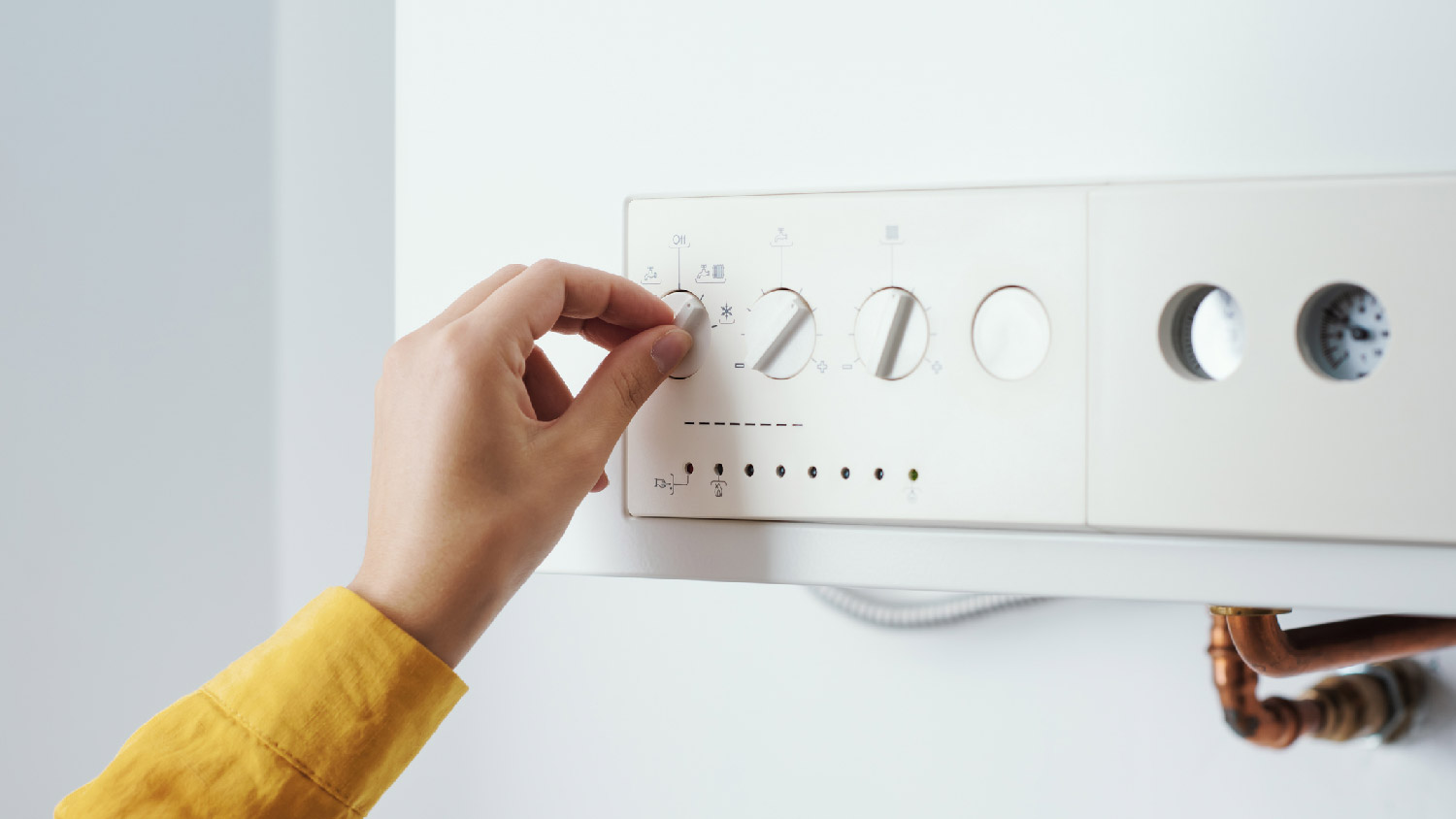
Remember, boilers can become dangerous if they start to malfunction, which is why maintenance is so important. Keep these boiler emergency steps in mind:
Know how to shut the boiler down: Find your emergency shutdown options, which should include an emergency switch or valve. If possible, avoid shutting down power to a boiler via the breaker box, which can cause additional electrical problems.
Check the pressure relief valve and bleed if necessary: Over-pressurization is one of the most dangerous scenarios for a boiler. Know the location of your pressure relief valve and ensure it’s in working order. If your boiler pressure starts to rise toward the danger zone, you’ll know how to release pressure fast.
Check the pilot light or ignition: A sudden outage in a gas-powered boiler can mean the pilot light has gone out, the electric ignition isn’t working, or the boiler has shut down for a similar reason.
Close water valves if necessary: If your boiler system has burst pipes or similar problems, it’s important to shut off water to the pipes ASAP. Knowing where your water valves are on the boiler can help shut down water to the pipes quickly.
Clear out the house and evacuate if necessary: If you suspect a gas or CO leak, open the windows in your house and clear out your household members. You want to avoid any fire or health hazards as the professionals address the boiler problem.
Contact emergency repairs: If a boiler has a serious problem, including pressure issues or a gas leak, get help right away. That can mean paying more for a 24/7 service to visit during off-hours and address the problem immediately. Except to pay around 50% more for an emergency boiler repair, depending on the time of service.
According to Angi data, nearly 33% of customers report the most common oil boiler problem is regular wear-and-tear maintenance. Other frequently reported problems are leaking or cracked boiler, not heating correctly, oil smell or weird noise, or malfunctioning pilot light.
Check out how your oil boiler problem stacks up against other Angi customers:
From average costs to expert advice, get all the answers you need to get your job done.

Find out the average tankless water heater repair cost, what impacts pricing, and how to save. Get expert tips to plan your repair budget with confidence.
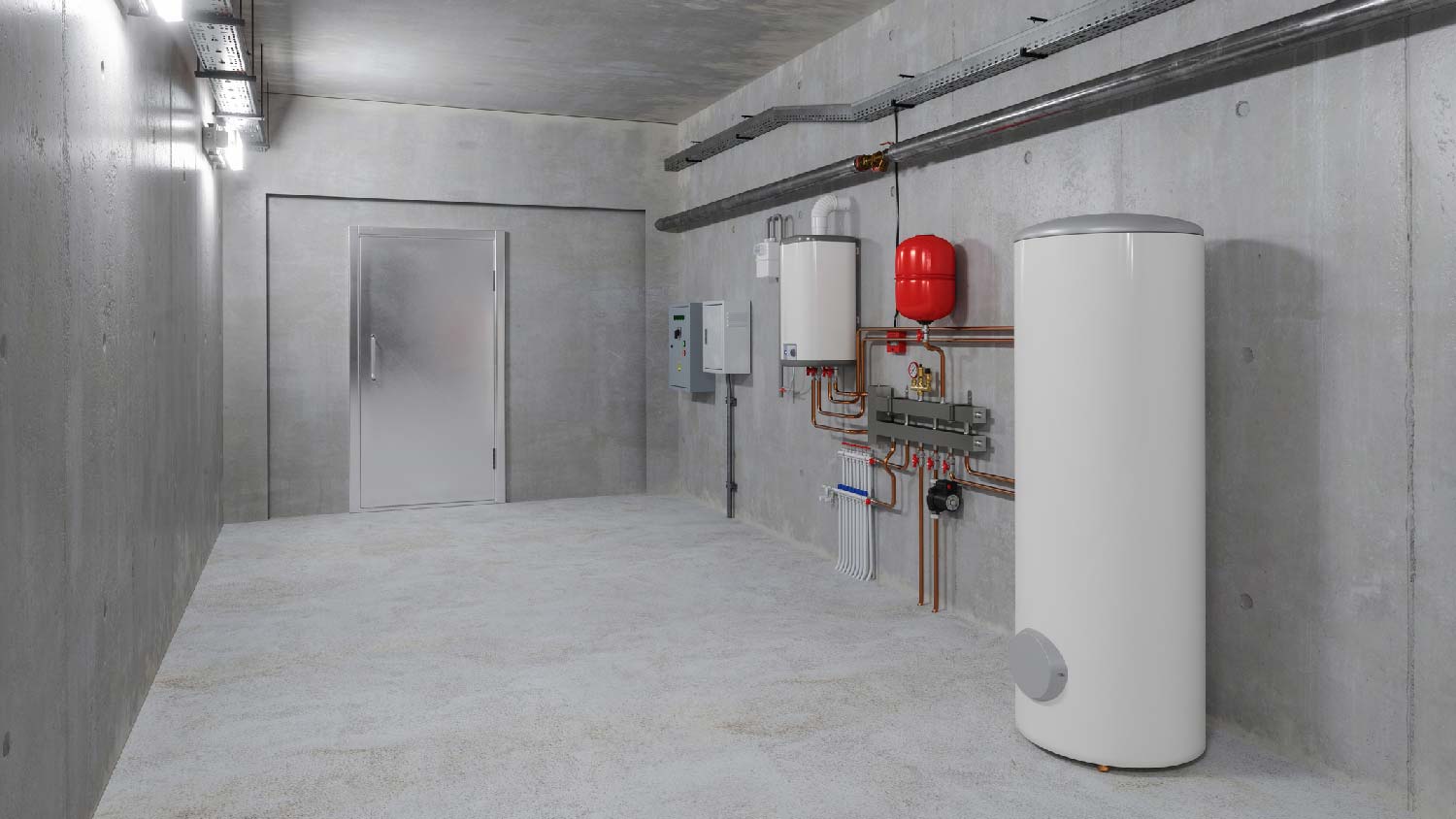
Learn all the factors that influence the cost to install a heat pump water heater at your home.

Running out of hot water too quickly or hearing strange noises when you call for hot water? Use this water heater repair cost guide to see what a fix will cost.
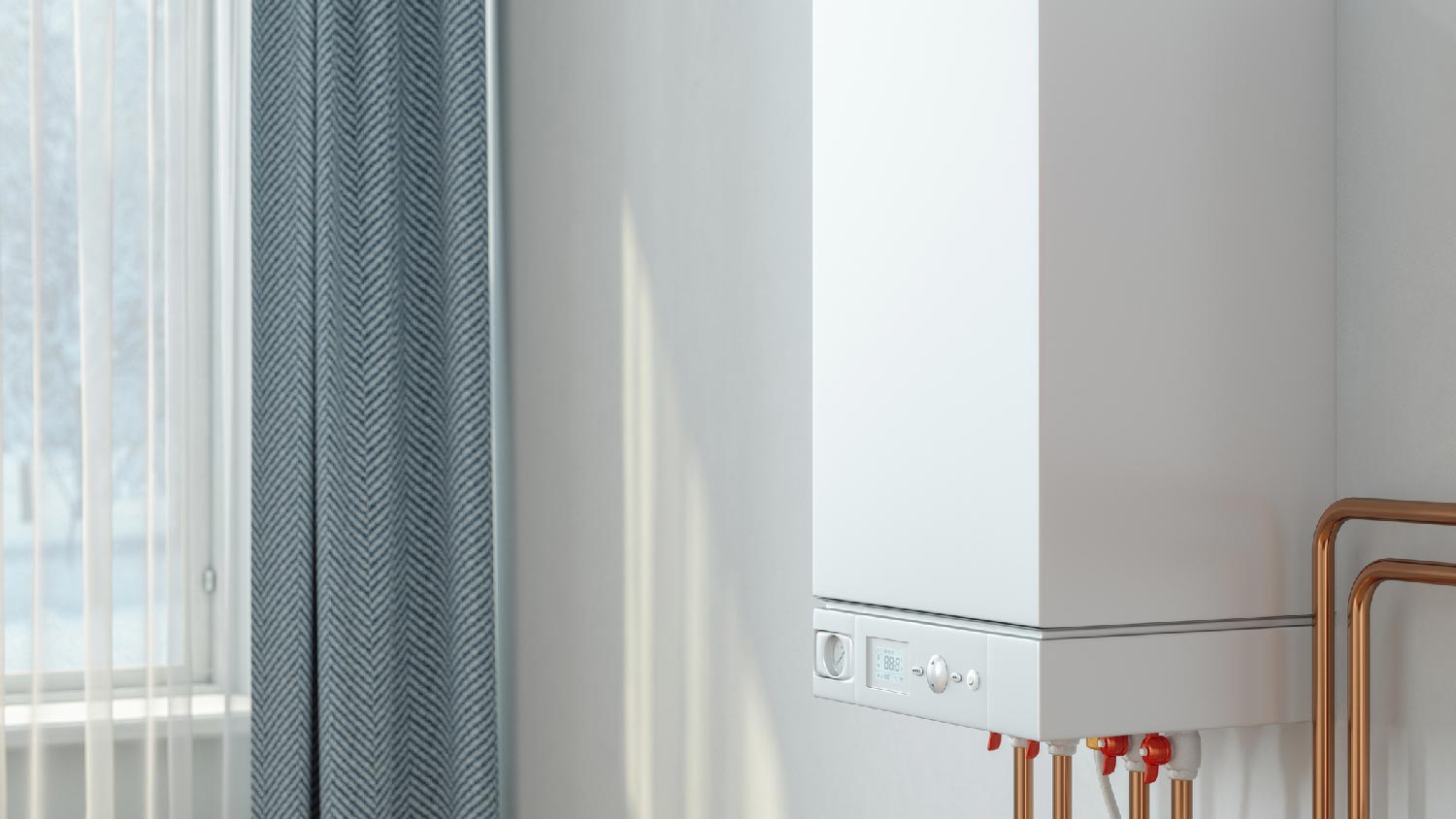
If your gas hot water heater isn't working, you want to fix the issue quickly to prevent safety risks and major damage. Here's how to troubleshoot.

Are you not sure who fixes hot water heaters? Find out who does this kind of work and who to call to get your hot water back on tap.

When your hot water is not working, it’s not always a water heater issues. Find out the cause and how to correct the course in our guide.